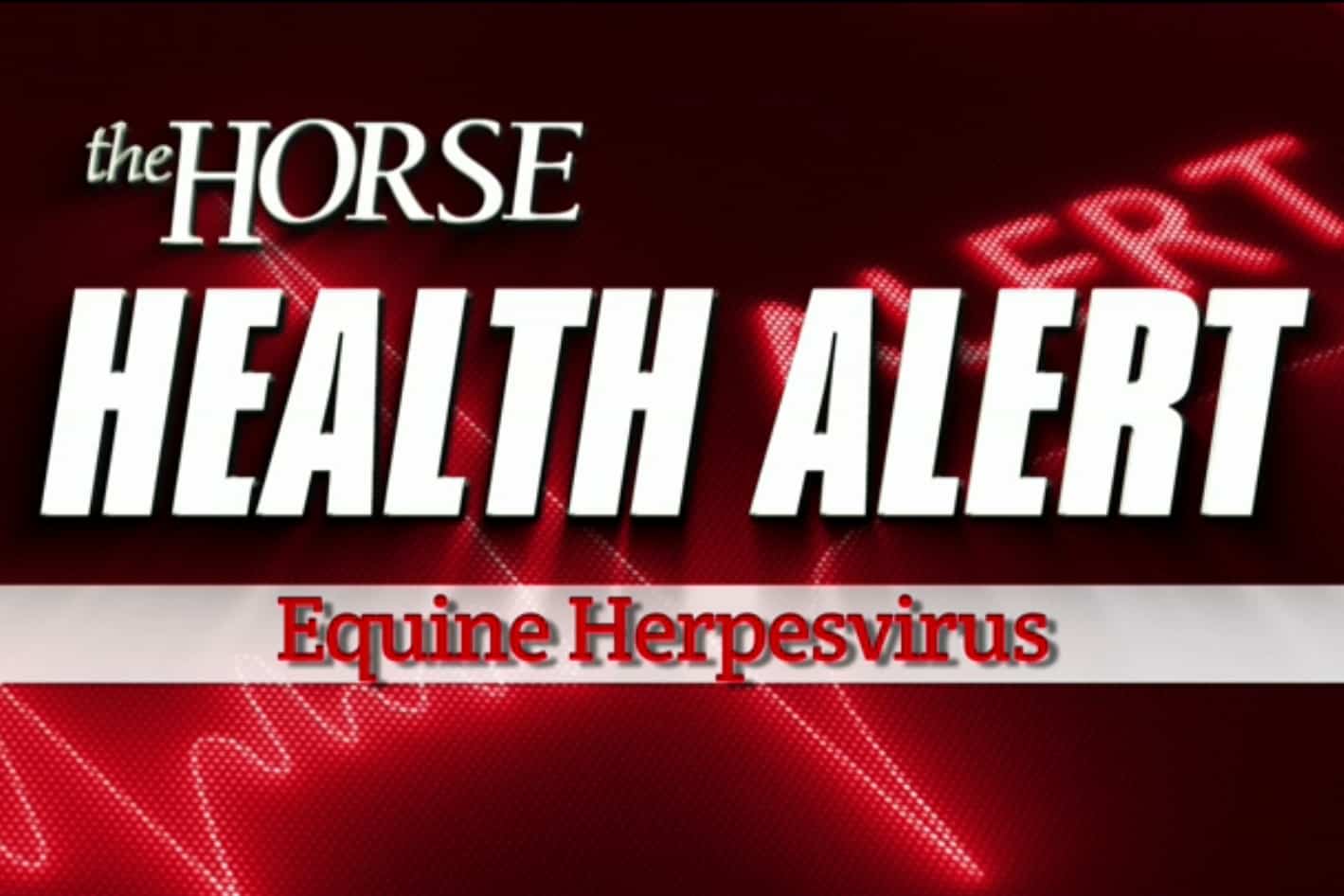Second California Horse Succumbs to Equine Herpesvirus Myeloencephalopathy

In addition to the index case, 20 horses were exposed on the premises.
EHV 101
Herpesvirus is highly contagious among horses and can cause a variety of ailments in equids, including rhinopneumonitis (a respiratory disease usually found in young horses), abortion in broodmares, and EHM.

In many horses, the first or only sign of EHV-1 infection is fever, which can go undetected. In addition to fever, other common signs of EHV-1 infection in young horses include cough, decreased appetite, depression, and a nasal discharge. Pregnant mares typically show no signs of infection before they abort, and abortions usually occur late in gestation (around eight months), but can be earlier. Abortions can occur anywhere from two weeks to several months following infection with EHV-1
Create a free account with TheHorse.com to view this content.
TheHorse.com is home to thousands of free articles about horse health care. In order to access some of our exclusive free content, you must be signed into TheHorse.com.
Start your free account today!
Already have an account?
and continue reading.
Written by:
Edited Press Release
Related Articles
Stay on top of the most recent Horse Health news with















